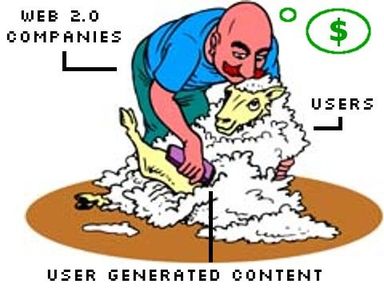A phone addictYes. My name is Tim Malbon and I am constantly seeking mindless stimulation.
Are you constantly seeking mindless stimulation?

I used to think people who complained about digital overload and distraction were simply weaklings. There was a time when I looked forward to swapping my eyes and hands for servo-driven connected gadgets. Not any more: I now find myself fantasising about living in a world without mobiles or internet, or Twitter, or Instagram. I dream of a year away even from electricity. Spending a year off the grid in the the twenty-first century would be my personal definition of ultimate luxury.
I used to think the Internet would give us super-powers: it would enhance the best aspects of being human, and make us kind of ultra-human. I was optimistic that the 'net' result of the Internet would be to upend dead hierarchies, and empower the crowd to re-set the world in a more equitable way. And I used to think we'd just work it out - that we needed a bit of time but that we'd figure out how to cope with the onslaught.
Today, it doesn't feel so rosy.
This video of a talk by Joe Kraus of Google Ventures has crystallised many of the ways I have been feeling. It's about the constant distraction we experience through our deranged relationship with our mobile phones. It's quite depressing - unfortunately, I recognise a lot of my own behaviour in what he talks about.
Joe KrausAs a culture, we’ve got a crisis of attention.
We’re becoming a distracted culture… one that is disconnected from one another. And I want to talk about what’s causing it.What are we losing – of ourselves, of our relationships to one another, of what in many ways, I would say, our humanity.
What can we do about it? If we all feel it, is there anything we can do to stop it? Or, is it out of our control?
It reminded me of another well-observed little film I saw recently: I forgot my phone.
Joe Kraus discusses what we lose in all this. It includes 'manners', which represent our respect for each other. We also lose downtime, and solitude. We are filling all the empty space with shit like Candy Crush Saga and 'likes'.
Unfortunately, I can't help thinking that part of our responsibility as experience designers is to help people manage this problem - you know, rather than trying to make it worse. The trouble is, distraction is baked in to a lot of the business models behind the same experiences we're struggling to manage - it's the way Google and Facebook make money, for example. Product and customer experience design that exists specifically to train us to become more compliant 'products' ourselves, to share more frequently and more deeply - so that our privacy may be more rapaciously farmed, is anti-human. We should be designing more humane interactions and experiences: not fiddling with the serotonin buttons inside peoples' heads to hack their attention for cash. That feels like the customer service/product experience equivalent of landfill marketing.
I'm going to try and turn my mobile phone off this weekend, and I'm going to try and sit a while in total silence to think without anything distracting me. And then I shall continue with Candy Crush Saga...
I am reminded of this old image from a million years ago...

Continue reading
Dispelling some myths about BIG thinking
Pats’ recent post ‘Why Big Is Still Beautiful’ resonated with me. I’ve spent the last year wrestling with the relationship between vision and validation a...
R.I.P. Picle
It's been a while since we last wrote a blog post about Picle, in fact it's been over a year. The last post promised a re-worked version with group piclin...
World of Innovation #Fail
I've been meaning to write this since seeing Kerry Bodine talk at the SoDA Annual General Meeting in Las Vegas last month. Kerry is Forrester's Customer E...


